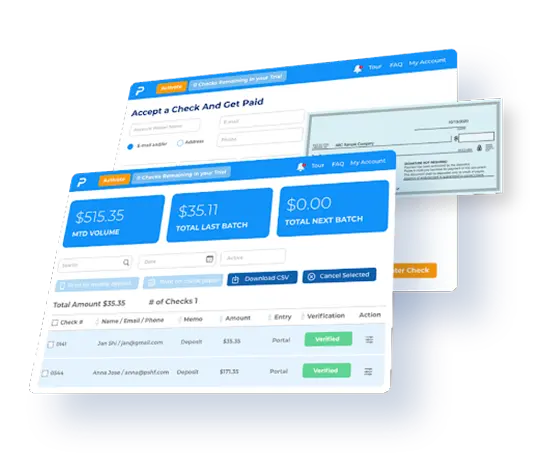Credit Card Processing Solutions
Find quick and useful ways to start processing credit cards without the hassle of working with a big bank. Our dedicated account managers will help you with approval, underwriting, setup, and security so you can start processing cards in no time.
- Innovative Technology
- Lightning Fast Processing
- Process Credit Cards Anywhere
- Lowest Possible Fees
- Let Customers Pay Their Way
- 24/7 Merchant Support
Accepting Credit Cards is Simple
Whether you’re looking to take cards in store or online, credit card processing ensures customers can buy what they want quickly and conveniently. Since many customers prefer to pay with credit cards, now is the time to expand your digital payment options to meet the rising demand for cashless payments.
Select from a wide variety of solutions
To process credit cards, you'll need a merchant account. There are hundreds of options available when it comes to choosing a merchant service provider.
Secure credit card processing
From EMV and PCI compliance to encryption, SSL's, and more, access the technology that helps you keep your business’ and customers’ information safe.
Fraud & chargeback reduction
Feel secure knowing that various fraud prevention tools and chargeback reduction techniques are working 24/7 to let you take card payments with ease.
Ready to Get Started?
Are you ready to accept credit card payments instantly? Get started with our 5 minute application.
Solutions to Help You Take Credit Card Payments Your Way
No matter what kind of business you run, you can process card payments smoothly when working with an experienced and recognized merchant service provider. Pick the tools and solutions that work for your business in order to run more efficiently, safely, and quickly.

Solutions to Help You Take Credit Card Payments Your Way
No matter what kind of business you run, you can process card payments smoothly when working with an experienced and recognized merchant service provider. Pick the tools and solutions that work for your business in order to run more efficiently, safely, and quickly.
Brick and mortar solutions
Investing in a point-of-sale system (POS). This system will equip you with the hardware and software to accept in store payments. Within seconds of swiping or inserting their card, a customer can receive a decline or approval on their purchase.
eCommerce solutions
If you’re looking to accept payments online, you’ll need a virtual terminal. Install one on mobile devices or desktops to expand your contactless payment offerings. Once installed, customers can shop and securely check out from any internet-enabled device.
Mobile solutions
Using your mobile device is one of the best ways to receive credit card payments because it is faster, easier, cheaper, and safer than ever. You can accept mobile credit card payments by attaching a mobile card reader to your tablet or smartphone. Accept credit cards, mobile wallets, and other digital and contactless payment methods to let customers pay their favorite way. And yes, you can even accept crypto payments.
10 Perks of Processing Credit Cards with PaymentCloud
Deciding to process credit cards is a big step for your business and opens up a whole new world of possibilities. As a small business owner, find relief knowing you can access customers not only in your city, but across the world. Find out why business owners are choosing PaymentCloud:
- Seamless Digital Payments
- Digitally Trackable Transactions
- Chargeback and Fraud Protection
- Full PCI Compliance
- Process Card Payments from Anywhere
- Providing Convenient Options
- Securely Encrypted Transactions
- Simple Contactless Payments
- Access to a Global Customer Base
- Increased Customer Trust
Ready to Get Started?
Are you ready to start taking credit card payments instantly? Get started with our 5 minute application.
Credit Card Processing for Small Business
No Need to Fill Out a Separate Application
We evaluate each merchant account for their specific risk factors. This way, we know what tools you’ll need to detect and prevent credit card fraud.
Simple Merchant Account Integration
Once you’ve identified the tools you want, integrating them with your payment gateway or virtual terminal is a breeze. Custom APIs let you get exactly what you want.
Transparent Pricing Schedule
Honest and straightforward pricing is important to us because it’s important to you. Don’t get locked into a contract ever again, call today to get set up.
